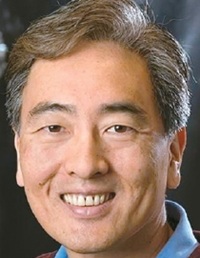Professor Jungsang Kim, a distinguished expert in electrical and electronic engineering and physics, has been appointed to lead Duke University’s science and technology strategy.
Duke University’s internal news outlet, Duke Today, reported on February 19 that Provost Alec Gallimore named Professor Kim the chief science and technology strategist, overseeing the Duke Science and Technology (DST) Initiative.
In this role, Professor Kim will work closely with various schools, institutions, and university stakeholders to develop specific implementation strategies for the initiative. He will also lead efforts to secure financial support and recruit innovative, entrepreneurial faculty members.

Regarding Professor Kim’s appointment, Provost Gallimore said, “I am delighted that Professor Kim will be leading Duke’s advancement in science and technology. His outstanding research career holds great significance as we embark on a new phase of the DST Initiative.”
Professor Kim is internationally recognized as a pioneer in quantum information science. He has been a faculty member at Duke University for over 20 years, leading the Multifunctional Integrated Systems Technology research group. He successfully developed commercially viable quantum computing technology by trapping atomic ions in a vacuum chamber and manipulating them with lasers.
In 2015, he co-founded IonQ with his longtime research collaborator, Professor Chris Monroe, bringing this technology to market. IonQ later became the first publicly traded pure-play quantum computing company.
Professor Kim earned his bachelor’s degree in physics from Seoul National University and his Ph.D. in physics from Stanford University. Before joining Duke University as a faculty member in 2004, he worked as a manager at Nokia Bell Labs. Currently, as the deputy director of Duke’s Quantum Center, he continues to advance quantum computing and quantum information science, applying them to various scientific challenges and real-world applications.
BY KYEONGJUN KIM [kim.kyeongjun1@koreadaily.com]


![Deeper-I, Efinix sign deal to develop world’s first AI-FPGA single-chip solution Ikuo Nakanishi, left, vice president of sales at Efinix and Lee Sanghun, right, CEO of Deep-I pose for a photo after signing MOU on March 26. [Provided by Deeper-I]](https://www.koreadailyus.com/wp-content/uploads/2025/04/0401-DeeperI-100x70.png)

